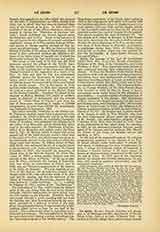

Leontius, Saint, Bishop of Frejus, in Provence, France, b. probably at Nimes, towards the end of the fourth century; d. in his episcopal town in 433, according to some authorities, though others say 445 or even 448. The date of his episcopal ordination is uncertain, but most likely it took place between the years 400 and 419; indeed the obscurity surrounding his life has not been entirely dissipated by the most, conscientious labors of historians. It is however, indisputable that he was a man of eminent sanctity, and his episcopate was marked with important results, else he would not have been from an early date associated with the Blessed Virgin as patron of the cathedral church of Frejus. A tenth-century document mentions him in this connection. There is reason to believe that he was a brother of St. Castor, Bishop of Apt, and that consequently like him he was a native of Nimes. At times he has been mistaken for other persons of the same name, especially for Leontius, Bishop of Arles, who lived at the end of the fifth century. But besides the difference in time, the important events associated with the name of the latter Leontius Tender the identification impossible. The principal occurrence during the episcopate of Leontius of Frejus was the establishment of the monastery of Lerins at the beginning of the fifth century. The name of this bishop is inseparably united to that of Honoratus, the founder of the monastery, and he seems to have played an important part in the development of the monastic life in the southeast of Gaul. Honoratus called him his superior and his father, whilst Cassian, who governed the numerous religious of the Abbey of St. Victor at Marseilles, dedicated most of his “Conferences” to him.
The relations of the monastery of Lerins to the diocesan bishop were most cordial and liberal. Some writers believe that this was due merely to the common custom of the age, but others hold, and not without reason it would seem, that it was the result of special privileges granted by Leontius to Honoratus, with whom he was intimately united in the bonds of friendship. Be that as it may, these regulations, which, while safeguarding the episcopal dignity, assured the independence of the monastery, and were confirmed by the Third Council of Arles, seem to have been the beginning of those immunities, which henceforward were enjoyed in an increasing degree by the religious communities. Moreover, the most cordial relations existed between the saint and the sovereign pontiffs. This is proved by the fact that St. Leo I, after his memorable quarrel with St. Honoratus, Bishop of Arles, deprived the latter of the prerogatives which gave him a kind of primacy over the district of Vienne, and bestowed them on Leontius. It is true that this important event took place only in 445, whilst Leontius had been succeeded in the episcopate by Theodore in 433. That is why some authorities have held that these prerogatives were granted to another Bishop of Frejus, likewise named Leontius, who would have been a successor of Theodore. To this the supporters of a loved tradition reply that St. Leontius abandoned his see in 432 to go and preach the Gospel to the Teutonic tribes, and returned to his diocese in 442, dying only in 445 or even 448. Unfortunately no very solid proof of this apostolate can be adduced. Consequently it is still quite uncertain whether or not the Diocese of Frejus had more than one bishop called Leontius. Another tradition, making St. Leontius a martyr, does not seem older than the beginning of the thirteenth century, and merits no credence. Earlier and, better authenticated documents give him the title of confessor, which alone is accurate.
LEON CLIIGNET

